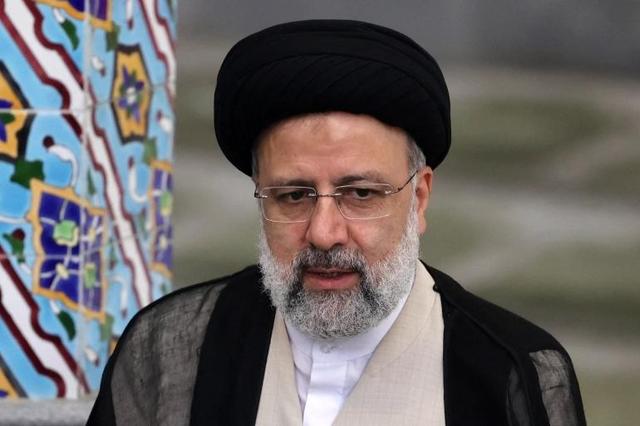Today, there's a public inauguration ceremony for Iran's new president, Ebrahim Raisi. His election to succeed the outgoing Hassan Rouhani means hardline conservatives are now in control of all of Iran's major branches of government. NPR's Peter Kenyon has been following the transition, joins us now from Istanbul. Peter, tell us a little bit more about Iran's new president. What do we know about him?
PETER KENYON, BYLINE: Well, we know he's a hard-line cleric. Ebrahim Raisi is a judge and former head of the judiciary as well. And he's actually the first Iranian president to take office while under U.S. sanctions. Those are imposed for his role in the mass execution of dissident prisoners back in the 1980s. But he's also known to be quite close to Supreme Leader Ayatollah Ali Khamenei. They share the same kind of hard-line views when it comes to defending the Islamic revolution and confronting the West.
And we also should note that the Iranian president is not an especially strong chief executive. Many of the most important decisions must have the supreme leader's approval. Now, in recent days, Khamenei has offered some harsh criticism of the outgoing president, Hassan Rouhani, and his government, a lot of it over their dealings with the U.S. and other Western powers. But Khamenei does seem to be looking forward to working with his fellow hard-liner, Ebrahim Raisi.
MARTINEZ: So Raisi, what's the biggest thing on his agenda?
KENYON: Well, what he says is strengthening ties with neighbors is very, very important. But his top goal has to be getting American sanctions on Iran lifted. Iran desperately needs to sell more of its oil, get its economy back on its feet because people are really suffering. On my last trip to Iran in late June, nearly every Iranian I met said rising prices, soaring inflation — I mean, well over 40% at times — those were their biggest problems. Now, sanctions aren't the only reason for that. There's corruption and poor management as well. But clearly, improving the living standards for ordinary Iranians should be high on Raisi's agenda.

MARTINEZ: Does this, in a way, force him, then, to work with the U.S.?
KENYON: Well, not necessarily. But in one case, at least, yes. Most Iran watchers say they're not looking for any general thaw in Iran-U.S. relations. In fact, it could be quite the opposite. Ebrahim Raisi's public comments so far suggest that he hasn't got any appetite for doing diplomatic deals with the West. He shares the hard-line suspicion of the West in general and the U.S. in particular with one exception. He is willing to see the U.S. return to the 2015 nuclear agreement. That's the deal that offered Iran sanctions relief in exchange for cutting its nuclear program. Raisi seems to support getting Iran back into compliance with that agreement.
MARTINEZ: That nuclear agreement, where do things stand on that?
KENYON: Well, talks in Vienna on that have been stalled. And it's been Iran insisting that talks don't resume until the Raisi government is in place and ready to take the reins. But this is one area where Raisi does seem to be willing to engage with the U.S. because he's got to get those sanctions lifted if he's going to have any chance of reviving the economy. Once you get beyond that issue, things become less clear quite quickly. The U.S., for instance, also wants to talk about Iran's ballistic missile program, its support for proxy militias in the region. Tehran says, no, not so fast. The U.S. is the one that walked away from this nuclear deal. It's up to Washington to get back into the agreement, lift all the sanctions. Raisi, meanwhile, is already on record as saying Iran's missiles and regional activities are non-negotiable. So I think the bottom line is the general diplomatic prospects are not rosy.
MARTINEZ: NPR's Peter Kenyon in Istanbul. Peter, thanks a lot.
KENYON: Thank you.











